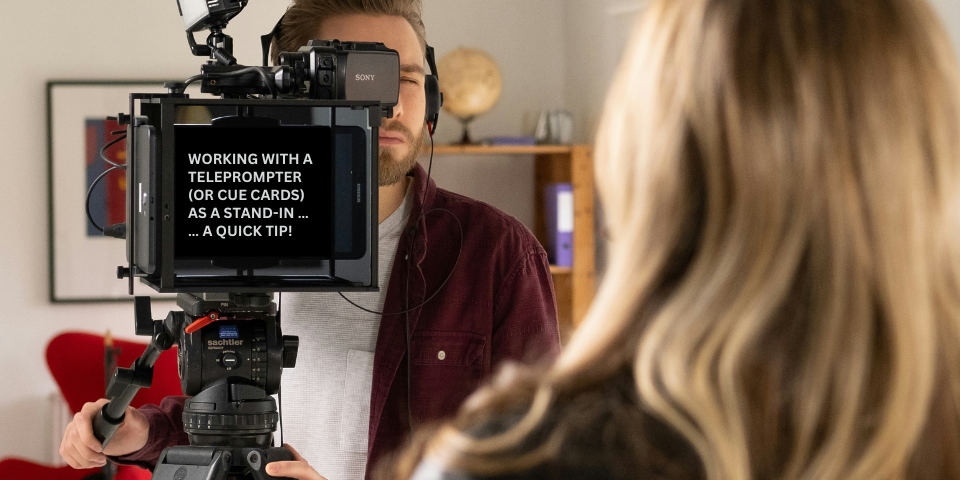So you’re faced with the prospect of standing in regularly on a long-term project. You might be quick to say “Yes!” at the opportunity, but it might be wiser to do some due diligence before being so quick to commit. Here are some considerations you might want to clarify before or once you take on a long-term stand-in job.
Projected Time Commitment
Not all long-term stand-in gigs are alike. For some stand-in gigs, you might be standing in for one actor, and that actor may work everyday. Or, you might be standing in for one actor, and that actor might work two days a week. For the latter, you will potentially need to find work for the other three days, but that may be difficult if your committed stand-in job has a variable and unpredictable schedule.
Ask about how many days a week you might expect to work on the project, and consider that answer against your income needs and availability.
Projected Workweek
While most projects work five days a week, Monday through Friday, that’s not true for all projects. Some projects will work, say, five days a week, Wednesday through Sunday, and some projects might actually schedule in a sixth work day.
If your weekends are precious, you might want to double-check that the stand-in gig you’re considering accepting works Monday through Friday. Or, if you need a couple weekdays during the week to manage your life, you might want to stay away from the gig that will work you Monday through Friday.
Type of Project
You can’t always tell from the name of the project whether it’s television or film (or something else). In general, film stand-in gigs are shorter than television stand-in gigs. A film gig might last a month or two or longer, but some television gigs consume up to nine months of the year.
You may want to check to see what type of project the stand-in gig is so that you can anticipate your life over the next several months or even year. Some stand-ins prefer to stand in on films over television given their shorter duration and variety; other stand-ins prefer a steady stand-in job for its predictability and security.
SAG or AFTRA Contract
While the SAG and AFTRA unions merged into SAG-AFTRA, the contracts for now remain different, and so do the health insurance and pension programs. If you’re trying to gun for your SAG pension, taking a long-term AFTRA stand-in gig might actually interfere with your chances of scoring a SAG pension credit given your unavailability to work on SAG projects while you’re on the AFTRA gig.
Health insurance and pension are very serious considerations for some stand-ins. Make sure to inquire about the kind of contract you’re working under so you don’t, say, jeopardize your health insurance for the next year in taking this long-term stand-in job.
Studio Location
Where will most of the shooting occur? If it’s a project based in a studio, you will likely want to know at what studio and where that is so that you can calculate your travel commitment. Stand-in gigs typically demand a lot of time from the stand-in, and you may not be interested in a regular commute to another state in order to do the job. Then again, how exciting it could be to find you’re standing in a studio that is very close to you!
A hellish commute day in and day out may wear on your already worn-out body, so inquire about where the project will be regularly shooting so that you can make these considerations.
Whom to Ask for Information on Your Long-Term Stand-In Job
Likely you are being booked for a stand-in gig by a casting director. When you are booked for a camera test, interview, or even the gig, these may be the best times to make general inquiries about the nature of the stand-in job.
If for some reason that is not an option, another option might be to do your own research using the union production listings or even the Internet Movie Database. Keep in mind that the information on these sites may not be the latest or may even be outdated, but it may give you some answers to your general questions.
Lastly, you can also inquire when you are on set on your first day. You might ask the background PA or possibly the 2nd 2nd AD if you have a relationship with that person. By far, the best option is to inquire before taking work because it prevents you from entering into a situation you cannot manage, but when you are on set you may have the most accurate information about what to expect of your long-term stand-in gig.
Do you consider any other factor when standing in on long-term projects? How do you find out this information? If you have pointers, ask below!






I find “IF” they have an idea about if there are predominantly exteriors being shot for the actor you’re standing in for, it’s nice to know, if possible, in making your choice. Along with all of the points you’ve outlined above.